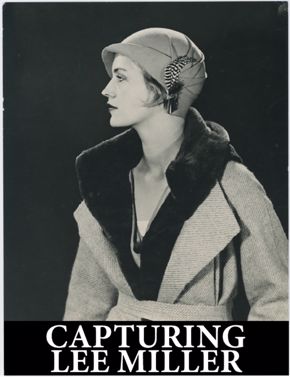Virtual Cinema | New Documentary “Capturing Lee Miller” Reveals the Story of a Remarkable Photographer December 27, 2020
The engrossing new documentary Capturing Lee Miller profiles one of the world’s most intriguing female photographers.
“You may not have heard of Lee Miller (1907–1977), but this film uncovers her fascinating life. She went from a supermodel, appearing on the cover of American Vogue, to a photographer and war correspondent covering the liberation of Europe at the end of World War II, before retreating from public life after the trauma she witnessed.” —Stylist magazine
Lee Miller was a popular Vogue model in the 1920s. At the age of 18 she moved from New York to Paris, where she studied with Surrealist artist Man Ray, eventually becoming his lover and muse. After returning to New York in 1932, she smiled when a journalist referred to her as “one of the most photographed girls in Manhattan” and retorted, “I’d rather take a picture than be one.” Miller then established her own photography studio.
A 20th-Century Trailblazer
Miller is one of the most extraordinary female icons of the 20th century. She defied anyone who tried to pin her down, put her on a pedestal, or pigeonhole her in any way. She was a trailblazer, often at odds with the morality of the day, who refused to be subjugated by the dominant male figures around her. She was also a woman with little maternal instinct. Her photographer son, Antony Penrose, explains that he was astonished at learning of his mother’s entire career only after her death, when boxes she had packed away were discovered.
In an absorbing 60 minutes, Capturing Lee Miller tells the story behind Miller’s famous photograph of being in Hitler’s bathtub; covers how she was affected by the then-unrecognized post-traumatic stress disorder; and includes a bombshell announcement at the end.
• Capturing Lee Miller / Streaming January 8–31. Your ticket ($10) supports the MFAH and provides a 2-day pass to the film. SEE THE TRAILER
Underwriting for the Film Department is provided by Tenaris and the Vaughn Foundation. Generous funding is provided by Nina and Michael Zilkha; The Consulate General of the Republic of Korea; Franci Neely; Carrin Patman and Jim Derrick; Lynn S. Wyatt; ILEX Foundation; L’Alliance Française de Houston; and The Foundation for Independent Media Arts.






